Jun
30
2014
 This is the third of a four part written debate between myself and Michael Fullerton, who believes that the collapse of the Twin Towers on 9/11 was not due to the official story of damage from the impact of commercial jets, but rather the result of a controlled demolition. His initial post is here. My first response is here. Next week I will give my final rebuttal.
This is the third of a four part written debate between myself and Michael Fullerton, who believes that the collapse of the Twin Towers on 9/11 was not due to the official story of damage from the impact of commercial jets, but rather the result of a controlled demolition. His initial post is here. My first response is here. Next week I will give my final rebuttal.
_________
Part III: Rebuttal to Steven Novella
by Michael Fullerton
Dr. Novella’s response to my initial arguments consists mainly of the weak arguments I had already dispensed with in Part I. He claims an initial event is evidence for a following event (post hoc ergo propter hoc); he claims I provided no evidence for controlled demolition (CD); he claims CD requires explosions and he claims that I claimed that a scientific explanation requires precedence. It’s as if he completely ignored parts of my writing that conflicted with his beliefs. He keeps repeating these false arguments because he has nothing else of any significance to offer.
Novella states that he accepts “the consensus of expert opinion that the collapse of the towers was due to the structural damage and weakening of the steel supports caused by the impact of the jets, the burning of the jet fuel, and the subsequent fires that burned through the buildings.” In science, a consensus opinion means that the majority of people in the field agree with a particular explanation for a phenomena. How has Novella determined consensus? He provided no evidence of consensus just the NIST report and a statement from 25 ASCE civil engineers. No poll has been conducted to provide evidence to support this statement. The fact that 2200+ architects and engineers question the official 9/11 story[1] seems to throw cold water on this “consensus”.
Note that Novella’s consensus argument is precariously close to committing two fallacies here: appeal to the masses (AKA appeal to consensus) and appeal to authority. The appeal to the masses fallacy occurs whenever a conclusion is deemed true because the majority of a particular group believe it is true. The appeal to authority occurs whenever a conclusion is deemed true simply because one or more experts believe it is true. Claiming therefore that something is true because a majority of experts in the field believe it is true is a false argument. In fact, even using a consensus argument to claim one explanation is more likely than another is baseless. We know this because countless times in the history of science, the consensus has often been very wrong. Since Novella is hinting that the explanation is more likely rather than that it is true, I’m not going to call it fallacious even though it could easily be argued as such.
Novella falsely claims that I dismiss the official story evidence for collapse initiation. I don’t dismiss it. I am merely saying it does not in any way constitute evidence for the rest of the collapse. Bizarrely, Novella actually claims that evidence for collapse initiation of the Twin Towers is evidence of how they fell. As I stated in Part I, arguing that a preceding event caused a following event involves the post hoc ergo propter hoc fallacy. He does not deny that it is a logical fallacy or explain how a fallacy could in any way constitute evidence. Let me give an example. Suppose an airline pilot describes icing conditions on the wings and windshield. Shortly thereafter the plane crashes killing all on board. Without investigating further, experts proclaim that these icing conditions resulted in the crash. Later, eyewitnesses come forward reporting that they saw an explosion right before the plane came down. This evidence was rejected because it went against the expert consensus. After much pressure by the victim’s family members, the eyewitnesses and other concerned people, an investigation was finally conducted which found a missile strike actually caused the fall. As we see, evidence of a preceding event is not necessarily evidence for a following event. Novella would be one of those that believed the icing was evidence for the crash. So once again, no evidence whatsoever is provided for the actual falls of the towers. The only “evidence” he has for the official story is a logical fallacy, a false argument! The official story believers and CD denialists really need to wrap their heads around this.
Continue Reading »
Jun
27
2014
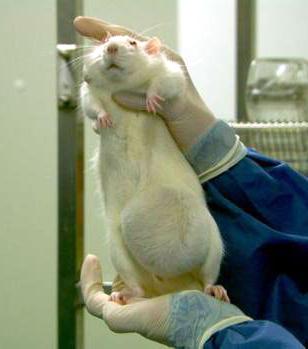 I don’t recall this ever happening before. It probably has, but if so, it’s rare enough that I have never heard about it. The strange odyssey of the paper, Long term toxicity of a Roundup herbicide and a Roundup-tolerant genetically modified maize, by Seralini et. al., just got stranger.
I don’t recall this ever happening before. It probably has, but if so, it’s rare enough that I have never heard about it. The strange odyssey of the paper, Long term toxicity of a Roundup herbicide and a Roundup-tolerant genetically modified maize, by Seralini et. al., just got stranger.
The paper was published in 2012 in Food and Chemical Toxicity. It was greeted with intense criticism from the scientific community for its many shortcomings, culminating in the journal retracting the study. Now the study has been republished by a new open access journal, Environmental Sciences Europe.
The GMOSeralini website is celebrating the republication, writing:
“Now the study has passed a third peer review arranged by the journal that is republishing the study, Environmental Sciences Europe.”
They also claim the the article was retracted because of pressure from pro-GMO lobbying.
Continue Reading »
Jun
26
2014
A study has been making the rounds on social media claiming an association between prenatal exposure to pesticides and the risk of autism and developmental delay. This means that I am getting asked by many people what the study actually shows. Spoiler alert – not much. But let’s break it down.
Autism spectrum disorder (ASD) is a neurological disorder involving brain development resulting in decreased communications among neurons in the brain and characterized by reduced social ability. Our current scientific understanding is that ASD is largely a genetic disorder. While environmental factors cannot be ruled out, it seems that genes are the primary factor. It’s reasonable to search for environmental risk factors, but so far none have been clearly established.
Those who feel there likely is an environmental factor also tend to believe that there is an autism epidemic – that the incidence of autism is increasing in a way that is not easily explained by genetics, and therefore suggests and environmental factor. While it is uncontroversial that the number of ASD diagnoses has been increasing over the last two decades, this does not necessarily mean that the true incidence of ASD has been increasing.
The evidence actually shows that diagnostic substitution, broadening of the definition of ASD, and increased surveillance account for much of the increased recorded incidence. It’s possible that changes in diagnostic behavior entirely accounts for the apparent increase. It’s also possible that a subset is due to a true increase, but that has not been clearly established.
Continue Reading »
Jun
24
2014
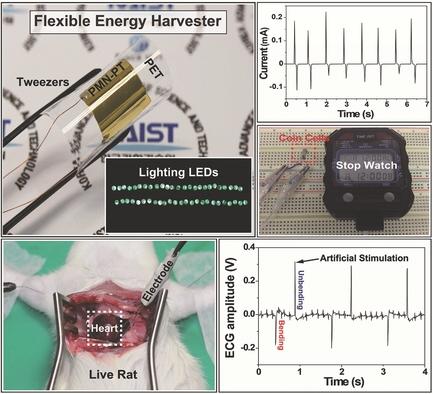 Energy is what makes stuff happen. The ability to generate energy in useful amounts and locations is key to our civilization. Often when discussing energy we are focusing on big energy, how to make large amounts of energy in a cost-effective manner with minimal negative impact on our environment.
Energy is what makes stuff happen. The ability to generate energy in useful amounts and locations is key to our civilization. Often when discussing energy we are focusing on big energy, how to make large amounts of energy in a cost-effective manner with minimal negative impact on our environment.
The ability to generate tiny amounts of energy is also useful, however. One particular application requiring a small but reliable source of energy is implantable devices, such as cardiac pacemakers. Right now pacemakers are run by small batteries. These batteries have a limited lifespan, and need to be surgically replaced.
What if, however, we could generate the required electrical energy from the body itself. Our bodies use a relative large amount of energy, creating movement, electrical signals, generating heat, assembling proteins and cells, and undergoing biochemical reactions. All we would need to do is tap into a tiny slice of this energy and there would be enough energy to power a pacemaker, or many other small implantable devices.
Continue Reading »
Jun
23
2014
 This is the second of a four part written debate between myself and Michael Fullerton, who believes that the collapse of the Twin Towers on 9/11 was not due to the official story of damage from the impact of commercial jets, but rather the result of a controlled demolition. His initial post is here. This is my first response. Another round will follow in the next two weeks.
This is the second of a four part written debate between myself and Michael Fullerton, who believes that the collapse of the Twin Towers on 9/11 was not due to the official story of damage from the impact of commercial jets, but rather the result of a controlled demolition. His initial post is here. This is my first response. Another round will follow in the next two weeks.
_________
Part II – The Collapse of the Twin Towers was the Result of the Commercial Jet Impacts
by Steven Novella
When Michael first contacted me he challenged me (as he apparently has other skeptics before me) to a live debate on the topic of the collapse of WTC1 and WTC2 on Septermber 11, 2001. I offered instead this written debate, as I feel the written format is better suited to a technical debate, where references and facts can be checked.
Let me begin my first response by reviewing what appears to be the common ground between our two positions. Michael and I both agree that commercial airliners struck each of the Twin Towers on 9/11, resulting in explosions, burning jet fuel, and structural damage to the towers. We also agree that some time following these impacts, each tower collapsed.
We disagree on the best scientific explanation for these collapses. Michael supports the controlled demolition hypothesis. I accept the consensus of expert opinion that the collapse of the towers was due to the structural damage and weakening of the steel supports caused by the impact of the jets, the burning of the jet fuel, and the subsequent fires that burned through the buildings.
Continue Reading »
Jun
20
2014
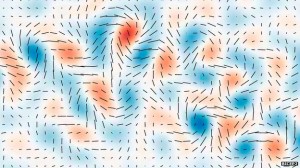 A critical part of skeptical outreach is teaching the public about how science works. Surveys of scientific literacy generally have dismal outcomes, but they also generally focus on knowledge about the findings of science, and not so much on the process of science. My personal experience from engaging with the public in multiple venues over decades is that those who are critical or suspicious of science generally are laboring under a gross misunderstanding of how science operates.
A critical part of skeptical outreach is teaching the public about how science works. Surveys of scientific literacy generally have dismal outcomes, but they also generally focus on knowledge about the findings of science, and not so much on the process of science. My personal experience from engaging with the public in multiple venues over decades is that those who are critical or suspicious of science generally are laboring under a gross misunderstanding of how science operates.
Actually it’s not quite accurate to talk about “science,” and that is not how I think about or evaluate scientific claims. Rather, the global scientific community has a certain culture and norms of acceptable behavior. Each country, however, has their own subculture and may have problems or failings specific to them. China, for example, apparently can only publish positive studies about acupuncture, betraying a national bias that calls into question any acupuncture study originating from that country.
Each scientific discipline also has its own subculture. Some professions and specialties are more rigorous than others. Further, each institution, lab, and researcher has their own culture and behavior.
Continue Reading »
Jun
19
2014
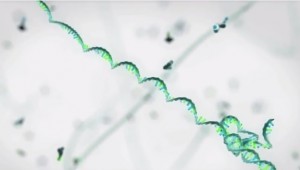 Creation.com, the authors of “15 questions for ‘evolutionists’ that they have already answered but we are going to continue to ignore those answers,” has recently release a trailer for their new movie where they apparently found 15 PhDs who are willing to embarrass themselves by documenting their scientific illiteracy. The film is “Evolution’s Achilles’ Heels,” and if the trailer is any indication, it is just a repackaging of the same creationist lies that have been exposed for decades.
Creation.com, the authors of “15 questions for ‘evolutionists’ that they have already answered but we are going to continue to ignore those answers,” has recently release a trailer for their new movie where they apparently found 15 PhDs who are willing to embarrass themselves by documenting their scientific illiteracy. The film is “Evolution’s Achilles’ Heels,” and if the trailer is any indication, it is just a repackaging of the same creationist lies that have been exposed for decades.
The trailer starts out with the claim, “Most evolutionists have never critically examined their own position.” That is, if you don’t count the last 150 years of scientific examination, thousands of published peer-reviewed papers, and dozens of popular books carefully (what’s that word?) examining the evidence for evolution. We can add to that now the countless websites and blog posts critically examining every question creationists endlessly raise. Seriously, such a claim is either a bald-faced lie, or evidence of profound intellectual laziness.
The next series of “Achilles’ Heel” shockers is based on a misunderstanding of biology, genetics, and evolution. The voice on the trailer claims that mutation and natural selection “work in the wrong direction,” and so “how does evolution work?”
You can see where they are going with this. In their 15 questions propaganda, #3 states that mutations cannot add specific information, because mutations “degrade” information. Then #4 repeats the canard that natural selection only removes unfit genetics from the population, and does not add anything.
It states:
Mutations are known for their destructive effects, including over 1,000 human diseases such as hemophilia. Rarely are they even helpful. But how can scrambling existing DNA information create a new biochemical pathway or nano-machines with many components, to make ‘goo-to-you’ evolution possible?
Continue Reading »
Jun
17
2014
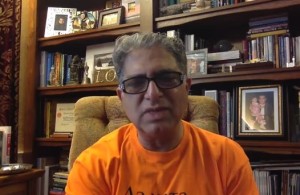 Deepak Chopra doesn’t appear to like skeptics much, or understand them. He just put out a YouTube video challenging “Randi and his cronies” to his own fake version of the million dollar challenge.
Deepak Chopra doesn’t appear to like skeptics much, or understand them. He just put out a YouTube video challenging “Randi and his cronies” to his own fake version of the million dollar challenge.
All we have to do, apparently, is make 50-100 years of scientific advance in neuroscience in a single peer-reviewed paper. I’ll get started on that right away.
Actually, even that probably would not be sufficient. The whole point of pseudoscientific goal-post moving is to keep forever out of reach of current scientific evidence. It doesn’t matter how much progress science makes, there will always be gaps and limitations to our knowledge. Chopra lives in the gaps.
Here is his exact challenge:
Dear Randi: Before you go around debunking the so-called “paranormal,” please explain the so-called “normal.” How does the electricity going into the brain become the experience of a three dimensional world in space and time. If you can explain that, then you get a million dollars from me. Explain and solve the hard problem of consciousness in a peer-reviewed journal, offer a theory that is falsifiable, and you get the prize.
The challenge is absurd because it is completely undefined. “Explain” to what degree? Science often advances by developing theories that are progressively deeper. Obviously we can explain consciousness on some level, and just as obviously Chopra would not accept that level as sufficient, but he gives absolutely no indication of how much deeper an explanation he would require.
Continue Reading »
Jun
16
2014
 This is the first of a four part written debate between myself and Michael Fullerton, who believes that the collapse of the Twin Towers on 9/11 was not due to the official story of damage from the impact of commercial jets, but rather the result of a controlled demolition. My response will follow next Monday, and another round of responses with one post per week.
This is the first of a four part written debate between myself and Michael Fullerton, who believes that the collapse of the Twin Towers on 9/11 was not due to the official story of damage from the impact of commercial jets, but rather the result of a controlled demolition. My response will follow next Monday, and another round of responses with one post per week.
_________
Part I – The Collapse of the Twin Towers was a Controlled Demolition
by Michael Fullerton
Dr. Steven Novella has graciously agreed to a debate on which explanation of the collapse of the World Trade Center Twin Towers (WTC 1 and WTC 2) on 9/11 is more scientific, the official US Government explanation or the controlled demolition explanation. I will argue that the controlled demolition explanation is more scientific. Dr. Novella will presumably argue that the official US Government explanation is the more scientific explanation. We have both agreed that no logical fallacies are to be used in this debate.
It’s very important to recognize this courageous act by Dr. Novella. It takes a strong character to put your reputation on the line and discuss such controversial and highly emotional issues. Good skeptics though must recognize when the scientific method proves their beliefs undeniably wrong.
I want to begin by asking all readers a question. Are you smarter than a 5th grade science student? Why? Because, starting as early as kindergarten, elementary school students learn that when you have two competing explanations you are supposed to favor the explanation which has the most supporting evidence. They are taught that an explanation with no supporting evidence is an explanation you cannot ever accept as true. By grade 5 at least, students are taught the scientific method. They learn that you must have evidence before putting forth an explanation for a phenomena. They learn that if you start with only a belief you are not doing science. They learn that if you ignore evidence that does not fit with your belief you are not doing science. Portraying something as science when it is not, is pseudo-science. People that claim to follow the scientific method but do not are pseudo-scientists.
Continue Reading »
Jun
13
2014
 I really resent groups that transparently try to take the moral high ground, or appropriate an entire category of people, to bolster their personal ideology. The Thinking Moms Revolution (TMR) is one such group. Sorry, you don’t speak for moms, and your group is certainly not based on thoughtfullness.
I really resent groups that transparently try to take the moral high ground, or appropriate an entire category of people, to bolster their personal ideology. The Thinking Moms Revolution (TMR) is one such group. Sorry, you don’t speak for moms, and your group is certainly not based on thoughtfullness.
A recent blog post in the HuffPo is clear pro-organic propaganda, borrowing the “mom” meme from TMR and another such group, Moms Across America. The theme of the blog is that glyphosate, the active ingredient in the herbicide Roundup, is a horrible toxin that is destroying our health, but luckily these plucky moms are going to take on the EPA and demand safety for our children (because the EPA obviously can’t do their job without help from non-scientist ideologues).
I went through a couple of overloaded irony meters reading the post, especially with this section: “Swaying Decision Makers With Science.” The article, rather, is a series of anecdotes, misrepresentations, and cherry-picked factoids masquerading as science for the purpose of ideological advocacy. No, eating organic is not going to cure your child of autism.
Continue Reading »
 This is the third of a four part written debate between myself and Michael Fullerton, who believes that the collapse of the Twin Towers on 9/11 was not due to the official story of damage from the impact of commercial jets, but rather the result of a controlled demolition. His initial post is here. My first response is here. Next week I will give my final rebuttal.
This is the third of a four part written debate between myself and Michael Fullerton, who believes that the collapse of the Twin Towers on 9/11 was not due to the official story of damage from the impact of commercial jets, but rather the result of a controlled demolition. His initial post is here. My first response is here. Next week I will give my final rebuttal.













